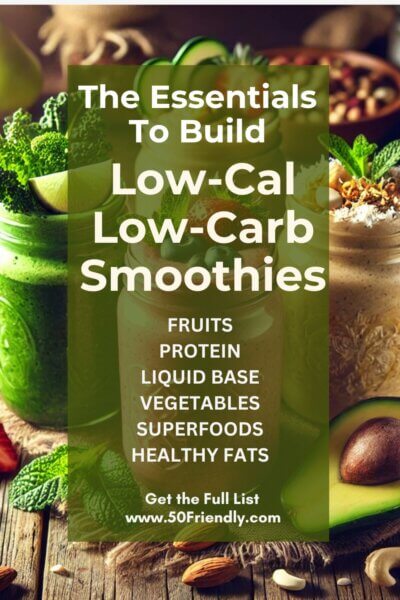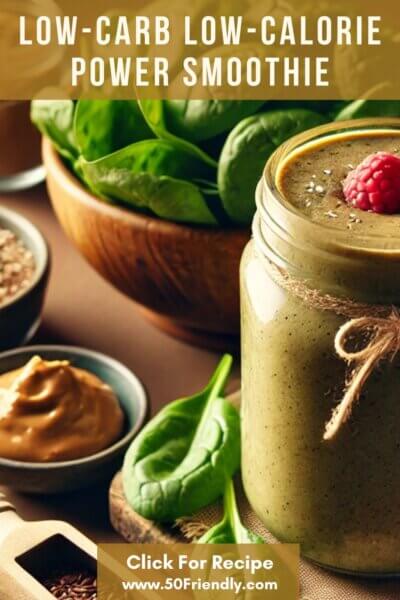The Essentials for Building A Low-Carb Low-Cal Smoothie
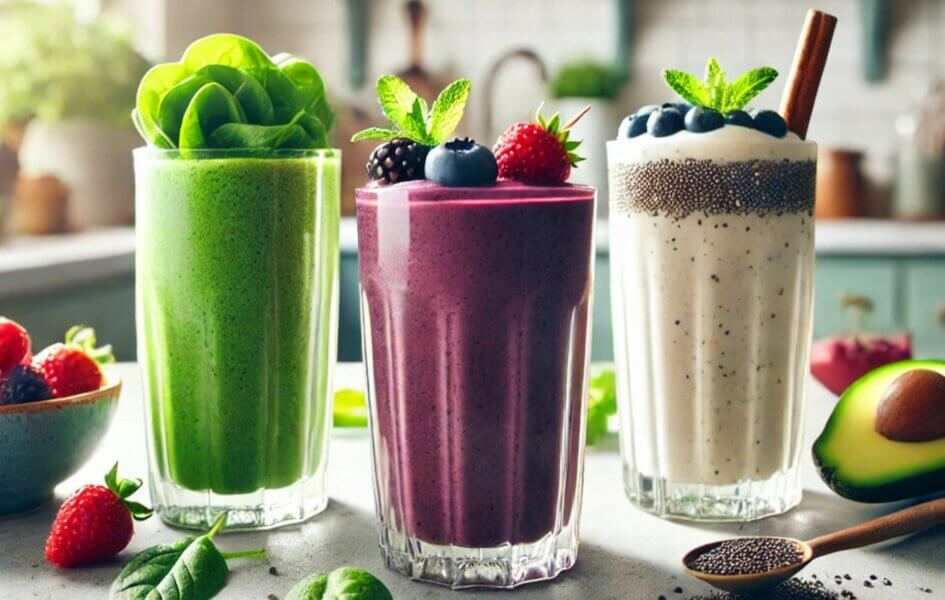
Perfect Smoothies: Balance of Vegetable, Fruit, Protein, Liquid Base, Superfood, Healthy Fat – Plus Power Smoothie
The Essentials for Building A Low-Carb Low-Cal Smoothie. Smoothies are the ultimate blend of convenience, nutrition, and flavor – perfect for busy mornings, post-workout recovery, or an afternoon pick-me-up.
They’re an excellent choice for anyone looking to maintain stable blood sugar levels, support weight management, or simply embrace a healthier lifestyle. Packed with fiber, healthy fats, and protein, these smoothies can fuel your day, address health concerns you may have, and even promote better digestion – all while satisfying your taste buds.
But if you’re looking to keep carbs and calories in check, creating a satisfying smoothie can feel like a balancing act. The good news – you can make your own blends. With the right ingredients, The Essentials, and a simple strategy, you can craft low-carb, low-calorie smoothies that are just as delicious and nutritious as their higher-carb counterparts. These blends not only support weight management and steady energy levels but also deliver essential nutrients to fuel your day.
The Essentials for Building A Low-Carb Low-Cal Smoothie
All it takes are 4 basic ingredients as your base. Build from there with healthy fats and superfoods to ensure your smoothie has additional nutrients to nourish your body – without the carb or calorie overload.
THE BASE:
VEGETABLE (greens are kings)
FRUITS (keep to a minimum)
REPLACEMENT PROTEIN (protein powder low in carbs and sweetened with sugar free sweetener)
LIQUID BASE (water, milks)
THE ESSENTIAL ADDONS:
SUPERFOODS (nuts, seeds, miscellaneous addons)
HEALTHY FATS (oils or butter)
SWEETENER (if necessary)
The lists below will help you make your own blends – beginning with the 4 basics and then the essential addons. And while there are obviously other fruits and vegetables, and other liquids and addons that are not listed below, it’s only because I personally don’t think they mix well, or taste very good, or are low-cal and low-carb enough to put in smoothies (and I can tell you I’ve made some real doozies). But if you’ve made your own with ingredients that are not listed here, just let me know what your blend was. I’d love to check it out and make it myself.
So are you ready to get creative and make your own?
START WITH A VEGETABLE
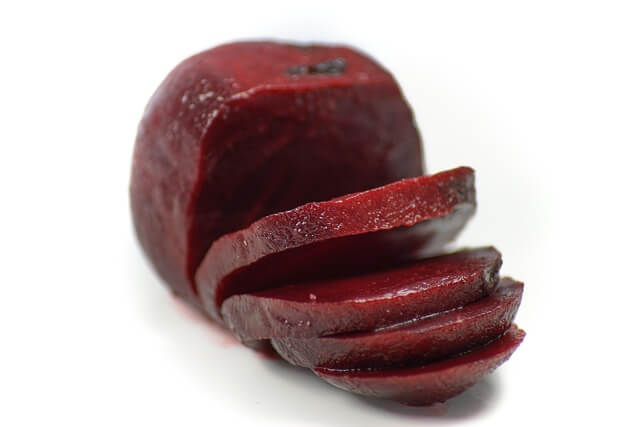
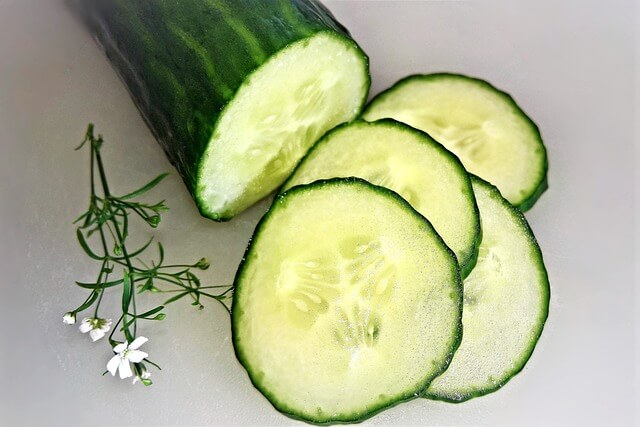
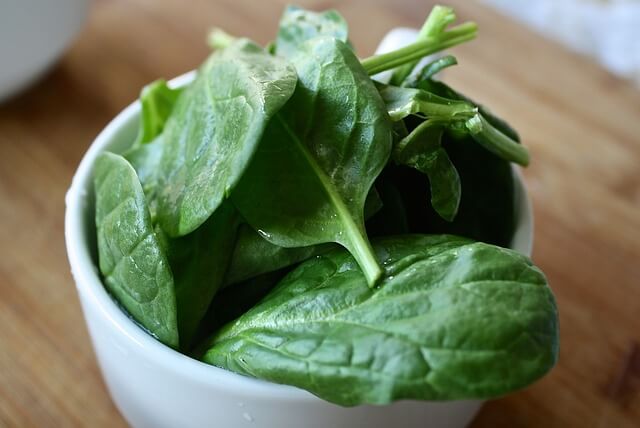
Adding vegetables to smoothies is a fantastic way to boost your nutrient intake without significantly altering the flavor. Vegetables are packed with essential vitamins, minerals, fiber, and antioxidants, making them an excellent choice for supporting overall health. They add volume and texture to your smoothies, help balance blood sugar levels, and promote a feeling of fullness, all while being low in calories and carbs. Plus, blending vegetables into smoothies is an easy and convenient way to sneak more greens into your diet – especially if you’re not a big fan of eating them on their own.
VEGETABLES FOR SMOOTHIES:
(per 1 cup – except cucumber and tomato)
Arugula: 0.4g carbs, 3 calories
Beets: 8g carbs, 37 calories
Broccoli: 6g carbs, 31 calories
Brussels Sprouts: 11g carbs, 56 calories
Butternut Squash (cooked): 21g carbs, 82 calories
Carrots: 12g carbs, 52 calories
Cauliflower: 5g carbs, 25 calories
Celery (raw): 3g carbs, 16 calories
Chard: 1g carbs, 6 calories
Cucumber (1 medium): 3g carbs, 15 calories
Endive: .08g carbs, 3 calories
Kale (raw): 7g carbs, 33 calories
Pumpkin, pureed: 12g carbs, 49 calories
Romaine Lettuce (raw): 1g carbs, 8 calories
Spinach (raw) 1 cup: 1g carbs, 7 calories
Sweet Potato (cooked): 18g carbs, 79 calories
Tomato (1 medium whole): 4g carbs, 22 calories
Zucchini: 4g carbs, 20 calories
Best Vegetables for Smoothies: Flavor and Nutrition
Spinach: Mild and slightly sweet, it blends seamlessly without altering the taste. High in iron, vitamin K, vitamin A, folate, and antioxidants. It also contains lutein, which supports eye health.
Kale: Earthy and slightly bitter, but pairs well with sweet fruits like pineapple or banana. Packed with vitamins A, C, and K, as well as fiber, calcium, and powerful antioxidants.
Cucumber: Light, refreshing, and subtly crisp. Hydrating and rich in vitamin K, potassium, and antioxidants, while being low in calories.
Zucchini: Neutral and creamy, making it a great substitute for banana in low-carb smoothies. A good source of vitamin C, potassium, and fiber.
Carrots: Naturally sweet and vibrant, adding a touch of earthiness. Rich in beta-carotene (vitamin A), which promotes healthy skin and vision, as well as potassium and fiber.
Cauliflower: Neutral, with a slight creaminess when blended. High in vitamin C, folate, and fiber. Also a good low-carb, low-calorie option.
Beets: Sweet and earthy, with a bold color that adds vibrancy. Rich in folate, manganese, and antioxidants that support heart health and circulation.
CHOOSE A FRUIT
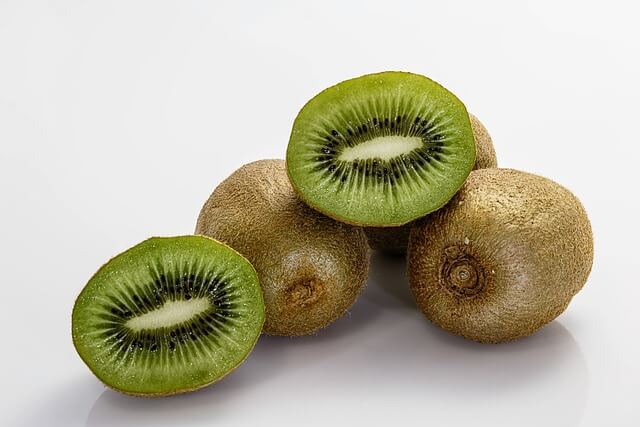
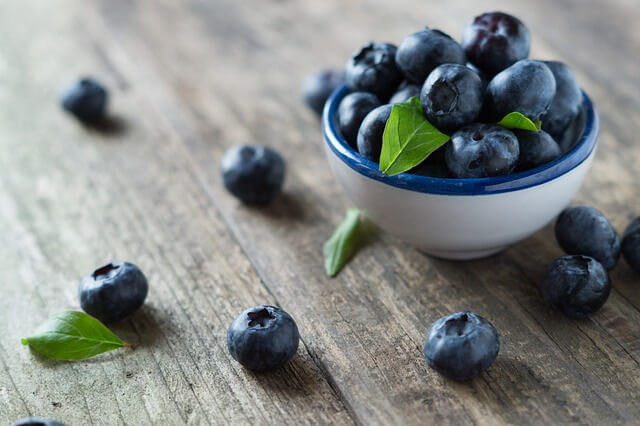
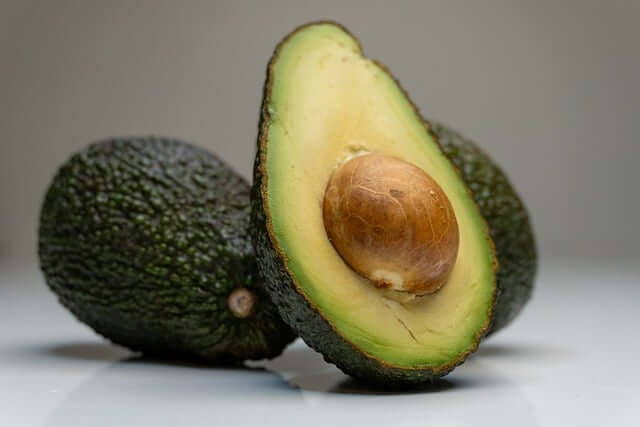
Fruits are a cornerstone of delicious and nutritious smoothies. They add natural sweetness, vibrant colors, and a wealth of vitamins, minerals, and antioxidants to your drink. Many fruits are also high in water content, making your smoothies hydrating and refreshing. Additionally, their natural fiber can help with digestion and promote a feeling of fullness. Whether you’re aiming for a nutrient-packed breakfast, a post-workout snack, or a healthy dessert, fruits provide a perfect base or complement to other ingredients.
FRUITS FOR SMOOTHIES
The rule I follow when I’m watching my weight with carbs and calories, is to limit the fruit to a 1/2 cup or half of a fruit ie: 1/2 of an orange, peach, mango, apple, banana. They tend to be high in sugar, carbs and calories.
Apple – 1 medium: 22g carbs, 80 calories
Avocado – 1 whole: 15g carbs, 289 calories
Banana – 1 medium: 27g carbs, 105 calories
Blackberries – 1 cup: 14g carbs, 62 calories
Blueberries – 1 cup: 21g carbs, 84 calories
Cantaloupe – 1 cup, cubed: 13g carbs, 54 calories
Cherries – 1 cup: 19g carbs, 77 calories
Grapes – 1 cup: 28g carbs, 108 calories
Kiwi – 1 whole: 14g carbs, 61 calories
Mango – 1 cup, chopped: 25g carbs, 99 calories
Orange – 1 medium: 15g carbs, 62 calories
Peaches – 1 medium: 14g carbs, 58 calories
Pear – 1 medium: 25g carbs, 96 calories
Pineapple – 1 cup, cubed: 22g carbs, 82 calories
Raspberry – 1 cup: 15g carbs, 64 calories
Strawberries – 1 cup, sliced: 13g carbs, 53 calories
Watermelon – 1 cup, chopped: 11g carbs, 46 calories
Fruits with the Best Nutritional Value
Berries (Blueberries, Strawberries, Raspberries, Blackberries): High in antioxidants (especially anthocyanins), vitamin C, and fiber. Support heart health, brain function, and immune system. Low in sugar compared to other fruits, making them versatile and nutritious.
Bananas: Rich in potassium, vitamin B6, and natural sugars. Provide energy and aid muscle recovery. They add creaminess and natural sweetness, ideal for thicker smoothies.
Apples: Good source of fiber (pectin), vitamin C, and antioxidants. Promote digestion and help regulate blood sugar levels. Mild flavor complements most ingredients.
Citrus Fruits (Oranges, Lemons, Limes, Grapefruits): Packed with vitamin C and antioxidants like flavonoids. Boost immunity and provide a refreshing tang. Brighten flavors in green or vegetable-based smoothies.
Avocados: High in healthy monounsaturated fats, vitamin E, and potassium. Promote heart health and add creaminess. Avocados have neutral flavor and healthy fat content balance sweeter fruits.
Pineapple: Contains bromelain (an enzyme that aids digestion) and vitamin C. Anti-inflammatory and promotes gut health. Adds tropical sweetness and pairs well with greens.
Best Fruits for Low-Carb, Low-Calorie Smoothies
Berries (Strawberries, Blueberries, Raspberries, Blackberries): Low in sugar and high in fiber. Around 50–80 calories per cup.
Avocado: Very low net carbs, as most are fiber. Higher in calories due to healthy fats, but very filling.
Citrus Fruits (Lemons, Limes): Extremely low in carbs. Calories are minimal, around 20–30 per fruit.
Melons (Cantaloupe, Honeydew, Watermelon): Moderate carbs, but hydrating and low-calorie. Calories are around 30–60 per cup.
Peaches: Moderate carbs, with about 10–15 grams per peach. Roughly 60 calories per peach.
CHOOSE A REPLACEMENT PROTEIN
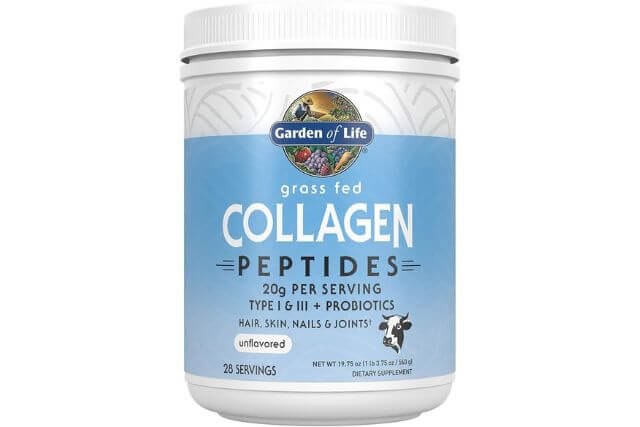
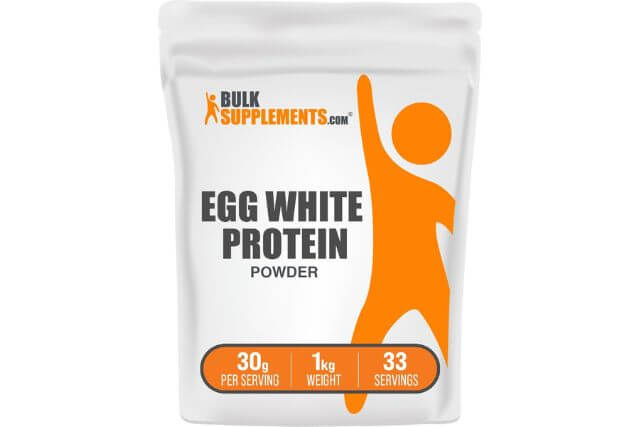
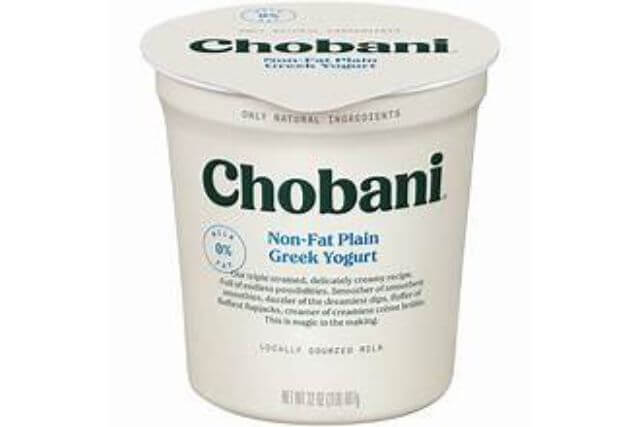
Protein is an essential macronutrient that plays a critical role in muscle repair, immune function, and overall energy levels. Adding a protein replacement to your smoothie can make it a more balanced and satisfying meal or snack. Protein helps stabilize blood sugar levels, curbs hunger, and promotes a feeling of fullness, which is particularly helpful if you’re aiming to lose weight or maintain a low-carb diet.
Whether you’re avoiding animal products, looking for convenient protein sources, or simply seeking variety, replacement proteins are a versatile and nutritious addition to your smoothie routine.
REPLACEMENT PROTEINS
(per 1 scoop)
Collagen Protein Peptides: 0 carbs, 40 calories
Egg Protein: 2g carbs, 81 calories
Hydro Beef Protein: 1g carbs, 100 calories
Whey Protein Isolate: 2g carbs, 120 calories
Pea Protein: 2g carbs, 113 calories
Hemp Protein Powder: 5g carbs, 100 calories
Unsweetened Low-Fat Greek Yogurt: 4g carbs, 47 calories (1/4 cup)
Silken Tofu: 11gcarbs, 38 calories (1/4 cup)
Protein Replacements with the Best Nutritional Value
Whey Protein Powder: Complete protein with all essential amino acids; high bioavailability. Best for Post-workout recovery and muscle repair. Almost zero carbs, low in calories, excellent for keto and low-calorie diets.
Pea Protein Powder: High in protein, iron, and essential amino acids; plant-based. Best for Vegan or vegetarian diets and those with dairy allergies. Low-carb and calorie-conscious. Great for plant-based, low-calorie options.
Collagen Peptides: High in protein and supports skin, hair, and joint health. Best for hose looking to boost protein without altering the taste or texture. Zero carbs and low calories. Boosts protein without adding bulk or altering flavor.
Hemp Protein Powder: Contains protein, omega-3 fatty acids, and fiber. Best for high-fiber smoothies and plant-based diets.
Egg White Protein Powder: Zero carbs and low calories. Neutral flavor and high protein content make it versatile.
Unsweetened Greek Yogurt: Rich in protein, calcium, and probiotics. Best for creamy smoothies with added gut health benefits. Low in carbs (depending on brand) and moderate in calories. Adds protein and a creamy texture without excess sugar.
Silken Tofu: Plant-based protein with iron and calcium; low in fat. Best for Vegan smoothies with a creamy texture.
CHOOSE A LIQUID
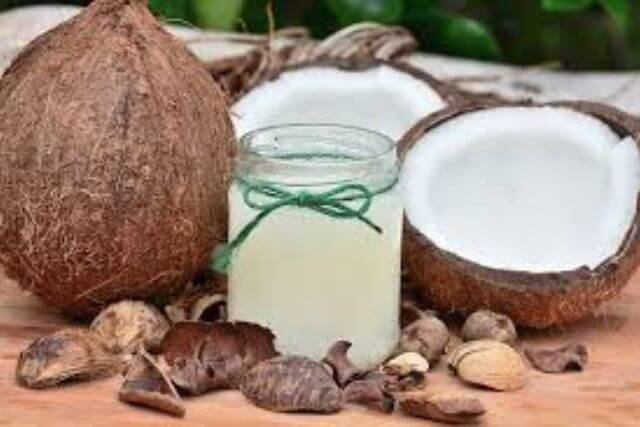
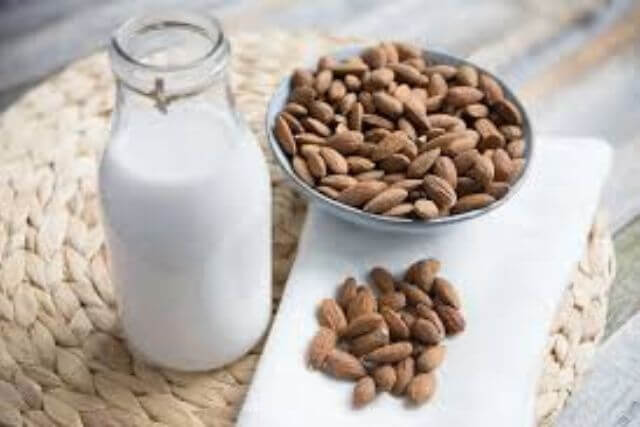
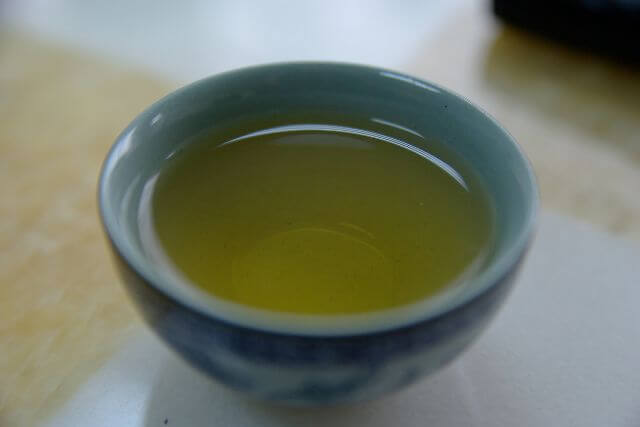
The liquid base of a smoothie is a crucial component that affects its flavor, texture, and nutritional profile. Choosing the right liquid can elevate your smoothie by adding essential nutrients while keeping it low-carb and low-calorie. Here’s a guide to the best liquids based on their nutritional value and suitability for different dietary goals.
THE LIQUIDS
(per 1 Cup)
Water: 0 carbs, 0 calories
Green Tea: 0 carbs, 3 calories
Coconut Water: 9g carbs, 45 calories
Coconut Milk (Lite): 3g carbs, 45 calories
Coconut Milk (whole): 4g carbs, 184 calories
Soy Milk: 15g carbs, 132 calories
Almond Milk: 3g carbs, 39 calories
Oat Milk: 23g carbs, 130 calories
Hemp Milk: 2g carbs, 72 calories
Rice Milk: 78g carbs, 120 calories
Liquids with the Best Nutritional Value
Unsweetened Almond Milk: Low in calories, contains vitamin E, calcium, and healthy fats. A versatile, creamy option that works with most smoothies while keeping carbs and calories low.
Unsweetened Coconut Milk (Carton): Low in carbs and calories, with healthy medium-chain triglycerides (MCTs). Adds a subtle tropical flavor and creamy texture.
Cashew Milk: Low-calorie, contains healthy fats, vitamin E, and magnesium. Creamy and slightly nutty, making it a perfect match for desserts or nut-based smoothies.
Unsweetened Soy Milk: High in protein, low in carbs, and a good source of isoflavones and calcium. Adds creaminess and protein, making it ideal for post-workout smoothies.
Unsweetened Oat Milk: Contains fiber, beta-glucans, and is moderate in calories. Adds a creamy texture and is best for smoothies where slightly higher carbs are acceptable.
Water: Zero calories, zero carbs. A neutral option for hydrating, light smoothies without added calories.
Green Tea (Unsweetened): Low-calorie, contains antioxidants like catechins and a small amount of caffeine. Adds a refreshing, slightly bitter flavor while boosting metabolism and energy.
Coconut Water: Low in calories and contains electrolytes like potassium and magnesium. Great for hydration but should be used in moderation for low-carb diets due to its natural sugar content.
Best Liquids for Low-Carb, Low-Cal Smoothies
Coconut Water: Adds natural sweetness and electrolytes with moderate calories
Water: A simple, carb-free option for light smoothies. Zero calories and keeps smoothies light and hydrating
Green Tea (Unsweetened): Adds flavor and antioxidants without carbs. Adds a refreshing flavor and minimal calories
Unsweetened Almond Milk: Low-carb and versatile for various smoothie flavors. Adds creaminess with minimal calories
Unsweetened Coconut Milk (Carton): Adds creaminess without spiking carbs. Offers a creamy texture with low-calorie content
Unsweetened Soy Milk: High-protein option for low-carb diets.
CHOOSE A SUPERFOOD
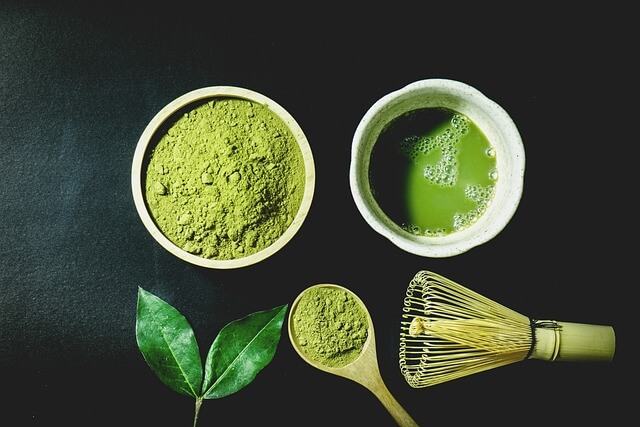
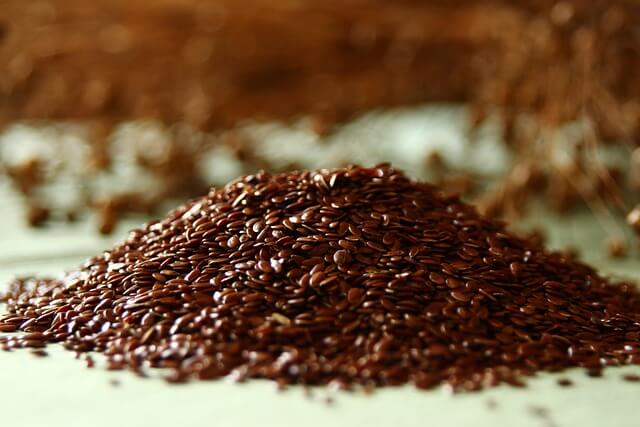
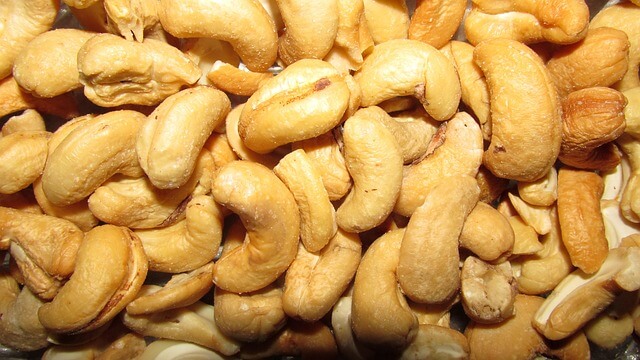
Superfoods are nutrient-dense ingredients that offer an impressive range of health benefits. Adding superfoods to your smoothies can elevate their nutritional value by providing vitamins, minerals, antioxidants, healthy fats, and other essential nutrients. These power-packed ingredients support immune function, enhance energy levels, improve digestion, and even promote skin health. Superfoods are versatile and can complement various smoothie recipes, making them a simple way to supercharge your diet.
Adding healthy oils, nut butters, nuts, and seeds to smoothies is a fantastic way to boost their nutritional value and texture. These ingredients provide a rich source of healthy fats, which are essential for brain function, hormone regulation, and nutrient absorption—especially fat-soluble vitamins like A, D, E, and K. They also enhance the creaminess and flavor of smoothies, making them more satisfying and indulgent. Additionally, the fiber and protein content in many of these ingredients can promote satiety, stabilize blood sugar levels, and support digestive health.
Superfood Replacements – Nuts, and Seeds with the Best Nutritional Value
NUTS & SEEDS:
(per chopped – 2 tbls or 1/8 cup)
Walnuts: 2g carbs, 100 calories
Peanuts: 3g carbs, 103 calories
Almonds: 3g carbs, 78 calories
Cashews: 2g carbs, 30 calories
Pecans: 7g carbs, 94 calories
Brazil Nuts: 2g carbs, 115 calories
Macadamia Nuts: 2g carbs, 120 calories
Chia Seeds (1 tbls): 7g carbs, 70 calories
Sesame Seeds (1 tbls): 2g carbs, 52 calories
Hemp Hearts (1 tbls): 1g carbs, 57 calories
Flaxseed (1 tbls): 2g carbs, 55 calories
Wheat Germ (1 tbls): 4g carbs, 31 calories
Pumpkin Seeds without shell (1 tbls): 2g carbs, 48 calories
Sunflower Seeds without shell (1 tbls): 2g carbs, 51 calories
MISCELLANEOUS ADD ONS
(1 tbls)
Spirulina: 4g carbs, 20 calories
Matcha: 1g carbs, 3 calories
Chaga Mushroom: 1g carbs, 10 calories
Reishi Mushroom: 1g carbs, 10 calories
Lions Main Mushroom: 2g carbs, 61 calories
Cacao & Reishi Mix: 8g carbs, 60 calories
Ashwagandha Root Powder: 1g carbs, 5 calories
Acai Powder: 3g carbs, 15 calories
Superfood Replacements – Best Nutritional Value and Flavor For Smoothies
Almonds: High in vitamin E, magnesium, and monounsaturated fats. Supports heart health, skin health, and energy production. Adds a subtle flavor without spiking carbs.
Walnuts: Rich in omega-3 fatty acids, antioxidants, and manganese: Promotes brain health and reduces inflammation. Ideal for low-carb diets with anti-inflammatory benefits
Cashews: Good source of copper, magnesium, and healthy fats.
Supports bone health and boosts immunity.
Pecans: High in monounsaturated fats, fiber, and antioxidants. Supports heart health and reduces oxidative stress. Perfect for adding sweetness and crunch to low-carb smoothies.
Brazil Nuts: Exceptionally high in selenium, along with magnesium and zinc. Supports thyroid function and immune health. Adds selenium and a mild flavor to low-carb smoothies.
Macadamia Nuts: High in monounsaturated fats and low in. Promotes heart health and supports weight management. Satiating, so a small amount goes a long way. Perfect for keto and low-carb smoothies
Chia Seeds: High in omega-3 fatty acids, fiber, and protein. Promotes heart health, supports digestion, and provides lasting energy. Low net carbs due to high fiber content. Adds thickness and keeps you full longer.
Hemp Seeds: Contain omega-3 and omega-6 fatty acids, complete protein, and magnesium. Great for muscle repair and overall health.
Spirulina: Rich in protein, B vitamins, and iron. Detoxifies the body, boosts energy, and supports immune health. Extremely low in carbs. A protein-packed, nutrient-dense addition.
Flaxseeds: Excellent source of omega-3s, fiber, and lignans. Improves digestion and supports hormonal balance. Low net carbs with fiber. Adds healthy fats and aids digestion.
Matcha Powder: High in antioxidants, particularly catechins. Enhances focus, boosts metabolism, and provides a calm energy boost. Minimal carbs and low calories. Provides a clean energy boost and pairs well with almond milk.
Acai Powder: Loaded with antioxidants, vitamins A and C, and healthy fats. Supports skin health and reduces inflammation. Slightly higher in carbs but low in calories. Adds antioxidants without excessive sugar.
Mushrooms:
* Lions Main is Mild and nutty, it blends seamlessly with creamy flavors like almond milk, vanilla, or banana.
* Chaga is subtly bitter but works beautifully in coffee or cocoa-based smoothies for a mocha-like experience.
* Reishi is best masked with strong flavors like chocolate, cinnamon, or peanut butter due to its bitterness.
CHOOSE A HEALTHY FAT
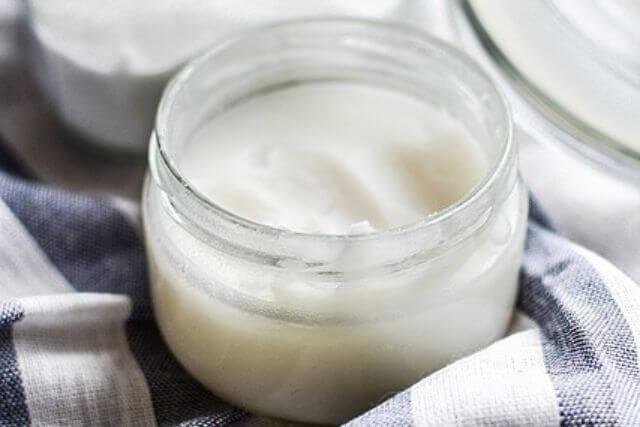
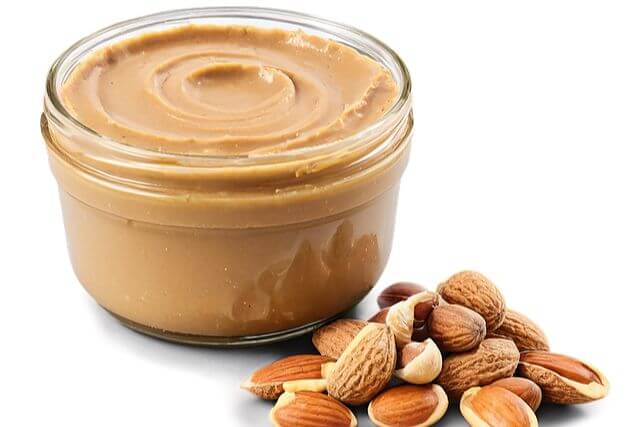
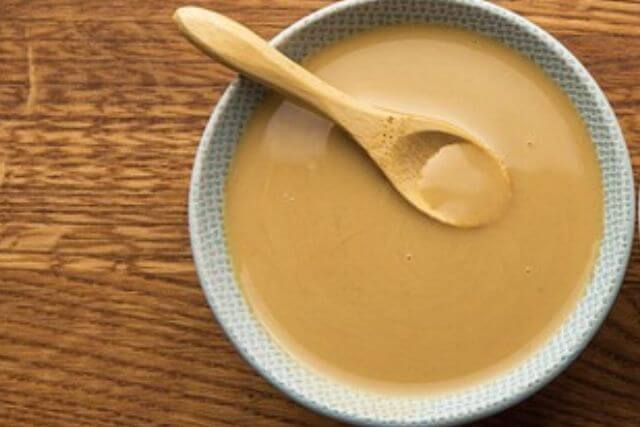
Adding healthy oils and butters to smoothies enhances their nutritional value, provides essential fats, and creates a richer, creamier texture. Healthy fats are crucial for energy, brain function, hormone production, and nutrient absorption, particularly for fat-soluble vitamins (A, D, E, and K). Here’s a guide to the healthiest options and their benefits, particularly for low-carb and low-calorie smoothies.
OILS:
Avocado oil (1 tbls): 0g carbs, 120 calories
Avocado (1 whole): 15g carbs, 289 calories
Coconut oil (1 tbls): 0g carbs, 117 calories
Olive oil (1 tbls): 0g carbs, 120 calories
Sesame oil (1 tbls): 0g carbs, 120 calories
Ghee or clarified butter (1 tbls): 0g carbs, 90 calories
MCT oil (1 tbls): 13g carbs, 121 calories
BUTTERS:
Almond butter (1 tbls): 1g carbs, 6 calories
Walnut Butter (1 tbls): 15g carbs, 289 calories *
Peanut Butter (1 tbls): 6g carbs, 188 calories
Cashew Butter (1 tbls): 8g carbs, 188 calories
Sunflower Seed Butter (1 tbls): 8g carbs, 185 calories
Tahini Butter (1tbls): 3g carbs, 89 calories
Healthy Oils with the Best Nutritional Value
Coconut Oil: High in medium-chain triglycerides (MCTs), which are quickly metabolized for energy. Supports ketosis, boosts metabolism, and promotes brain health. Adds a subtle tropical flavor and works well in low-carb smoothies.
MCT Oil: Concentrated source of MCTs with zero carbs. Provides quick energy, supports weight management, and enhances mental clarity. Completely flavorless and ideal for keto or low-carb diets.
Avocado Oil: Rich in monounsaturated fats, vitamin E, and antioxidants. Supports heart health and reduces inflammation. Neutral flavor that doesn’t overpower other ingredients.
Flaxseed Oil: High in omega-3 fatty acids and antioxidants. Supports heart health, brain function, and hormone balance. Mild, nutty flavor pairs well with greens and berries.
Olive Oil (Extra Virgin): Packed with monounsaturated fats and polyphenols. Reduces inflammation and supports cardiovascular health. Use sparingly for savory or Mediterranean-inspired smoothies.
Healthy Butters with the Best Nutritional Value
Almond Butter: High in vitamin E, magnesium, and healthy fats. Supports skin health, bone strength, and heart health. Adds creaminess and mild sweetness without overpowering the flavor.
Peanut Butter: Rich in protein, healthy fats, and vitamin B6. Promotes satiety and provides energy. A budget-friendly option for low-carb smoothies with a nutty flavor.
Cashew Butter: High in copper, magnesium, and heart-healthy fats. Supports bone health and boosts immunity. Smooth and creamy with a subtly sweet taste.
Tahini (Sesame Seed Butter): High in calcium, iron, and healthy fats. Supports bone health and adds antioxidants. Adds a unique, nutty flavor to savory or green smoothies.
Sunflower Seed Butter: High in vitamin E, magnesium, and polyunsaturated fats. Great for those with nut allergies and promotes skin health. Neutral flavor that pairs well with most ingredients.
Best for Low-Carb Smoothies
MCT Oil: Zero carbs. Perfect for keto diets and provides fast energy. However use sparingly to control calorie intake.
Coconut Oil: Zero carbs, Enhances ketosis and adds a subtle flavor.
Almond Butter (Unsweetened): Low in carbs. Provides healthy fats and protein while keeping carbs low.
Flaxseed Oil: Zero carbs. Adds omega-3 fatty acids without impacting carbs. Adds essential nutrients without significant calories.
Tahini: Low in carbs. Unique flavor and high in healthy fats. Best for Low-Calorie Smoothies
Sunflower Seed Butter (Unsweetened): Moderate in calories, great for adding creaminess with minimal carbs.
CHOOSE A SWEETENER (IF DESIRED)
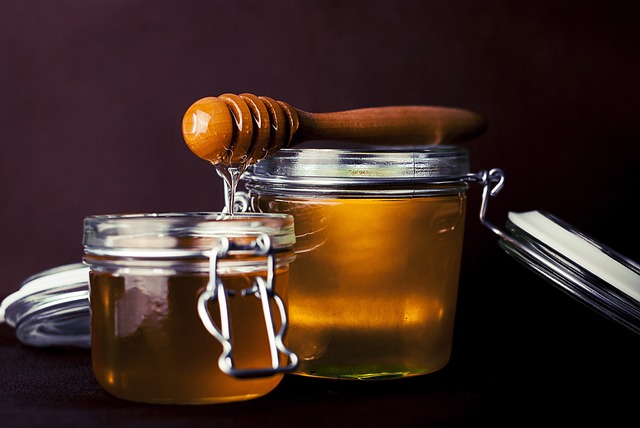
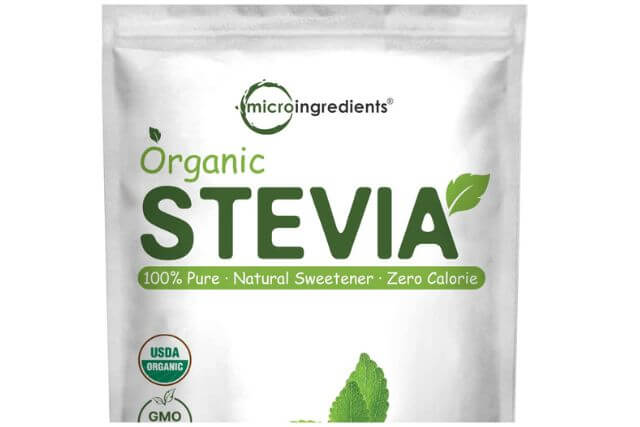
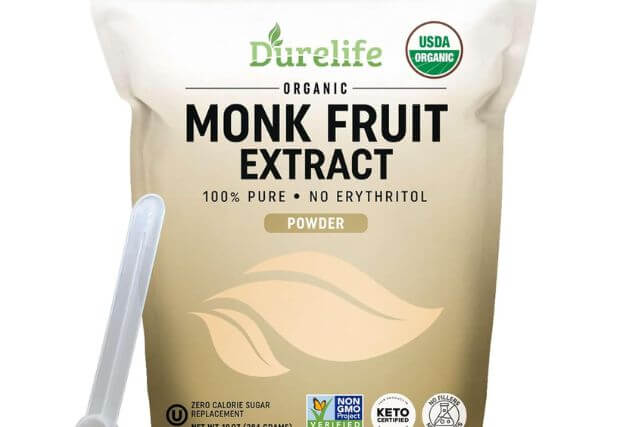
Sweeteners can enhance the flavor of smoothies while maintaining their health benefits. Choosing natural and nutrient-dense sweeteners helps avoid unnecessary sugars and empty calories. For those following low-carb or low-calorie diets, there are plenty of options that provide sweetness without spiking blood sugar or derailing health goals. Here’s a guide to the best sweeteners for smoothies based on their nutritional value and dietary compatibility.
SWEETENERS:
(per 1 tsp)
Stevia: 0g carbs, 0 calories
Monk Fruit Sweetener: 0g carbs, 0 calories
Raw Honey: 6g carbs, 21 calories
Maple Syrup: 4g carbs, 17 calories
Coconut Sugar: 4g carbs, 15 calories
1 DATE: 5g carbs, 23 calories
Erythritol: 1g carbs, 0 calories
Allulose: 4g carbs, 2 calories
Sweeteners with the Best Nutritional Value
Stevia: it is calorie-free and contains no carbs. Does not affect blood sugar levels and is safe for diabetics. Highly sweet and works well in any smoothie without adding calories.
Monk Fruit Sweetener: Zero calories, zero carbs; contains antioxidants (mogrosides). Diabetic-friendly and has no impact on blood sugar levels. Has a clean, sweet taste that blends well with fruits and greens.
Raw Honey: Contains antioxidants, vitamins, and minerals like iron and potassium. Supports immunity and provides natural energy. Use sparingly for added flavor and nutritional boost, especially in fruity smoothies.
Maple Syrup: Provides small amounts of manganese, zinc, and antioxidants. Adds natural sweetness with a hint of minerals. Best for indulgent smoothies but should be used in moderation due to its sugar content.
Coconut Sugar: Contains trace minerals like zinc, calcium, and potassium. Has a lower glycemic index than refined sugar. Works well for smoothies with tropical or nutty flavors.
Dates: High in fiber, potassium, and magnesium. Provides natural sweetness and boosts energy. A whole-food option that pairs well with creamy or chocolate-based smoothies.
Best Sweeteners for Low-Carb and Low-Cal Smoothies
Stevia: Zero carbs, ideal for keto and low-carb diets with no impact on blood sugar. Zero calories, A highly concentrated sweetener for calorie-conscious smoothies.
Monk Fruit Sweetener: Zero carbs, perfect for sweetening low-carb smoothies naturally. Zero calories, A natural option for calorie-free sweetness
Erythritol: Zero net carbs (sugar alcohol). Adds sweetness without calories or affecting blood sugar. Very low in calories, a sugar alcohol that adds sweetness without significant calories.
Allulose: Very low net carbs (not metabolized like regular sugar). Mimics sugar’s taste and texture without the carbs.
Raw Honey: About 60 cals per tablespoon, a nutrient-rich option for those needing a slight calorie boost.
Dates (Used Sparingly): Around 20 calories per date, adds natural sweetness and fiber while keeping calories relatively low.
Crafting Your Perfect Low-Carb, Low-Calorie Smoothie
Building the perfect low-carb, low-calorie smoothie is both an art and a science, but with the right ingredients and approach, it can be a simple and rewarding process. By choosing nutrient-dense bases, low-sugar fruits, vegetables, healthy fats, and natural sweeteners, you can create smoothies that are not only delicious but also aligned with your health and fitness goals.
Remember, the key to success lies in balance – combining flavors, textures, and nutrients that work harmoniously together. Whether you’re starting your day with an energizing green smoothie, recovering post-workout with a protein-packed blend, or enjoying a light snack to curb cravings, the possibilities are endless. With these essentials in hand, you’re now equipped to experiment, personalize, and enjoy smoothies that are both satisfying and guilt-free. Happy blending!
Low-Carb Low Calorie Power Smoothie
This nutrient-packed Low-Carb Low-Calorie Power Smoothie combines the power of spinach, raspberries, coconut water, flaxseed, almond butter, and collagen peptides to deliver a balanced blend of health benefits. This smoothie is a low-carb, nutrient-dense option perfect for boosting energy, supporting overall wellness, and keeping you satiated.
Spinach provides a rich source of vitamins A, C, and K, along with iron and fiber, while Raspberries add a touch of natural sweetness along with antioxidants and dietary fiber. Coconut water is hydrating and low in calories, offering electrolytes like potassium. Flaxseeds supply omega-3 fatty acids, fiber, and lignans, supporting heart and digestive health, while Almond Butter adds a dose of healthy fats and vitamin E. Collagen peptides contribute to skin, joint, and connective tissue health with their high-quality protein content.
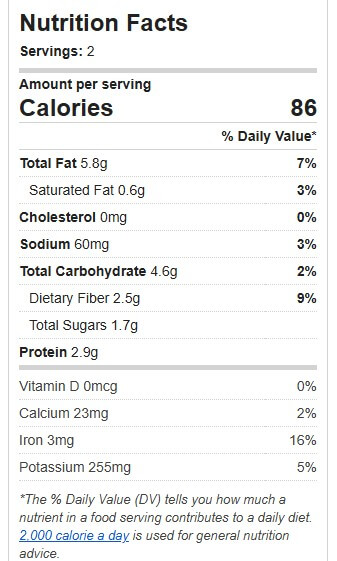
Low-Carb Low-Cal Power Smoothie
makes 2 8oz glasses
INGREDIENTS
1/2 c Spinach
1/4 c Raspberries
1 c Coconut Water
1 tbls Flaxseed
1 tbls Almond Butter
1 scoop Collagen Peptides
INSTRUCTIONS
Add all ingredients to your blender and give it a good whirl. Add more water if it’s too thick
Smoothies can be consumed on the Bone Broth Diet, the 80/20 Bone Broth Lifestyle Plan for weight management, or if you’re counting calories and carbs. I have an extensive list of over 400 smoothies that I have made thus far, that you can check out. Just click this SMOOTHIE RECIPE link.
If you’re interested in on going on this 21 day Bone Broth Diet and want to make your own Low-Cal Low-Carb meals, I can send you the PDF’s for the YES and NO FOODS allowed on the diet. Just let me know where to send them.
—————

